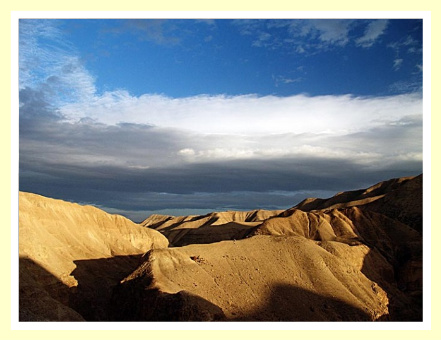Eyktol
From Mizahar Lore
(→Native Peoples) |
|||
| Line 33: | Line 33: | ||
Eyktol hosts four different people groups who persevered after the Valterrian, though only two are indigenous. | Eyktol hosts four different people groups who persevered after the Valterrian, though only two are indigenous. | ||
| - | The indigenous people are the [[Eypharian]]s and [[Chaktawe]]. While the [[Benshira Human]]s and Viper [[Dhani]] | + | The indigenous people are the [[Eypharian]]s and [[Chaktawe]]. While the [[Benshira Human]]s arrived two hundred or so years before the Valterrian and Viper [[Dhani]] became prominent near a hundred years BV. |
==Creatures of Note== | ==Creatures of Note== | ||
Revision as of 20:22, 16 October 2011
Contents |
Geography and Climate
Eyktol is overwhelmingly desert with scarce patches of green scrub and low scrawny trees. Cacti are rare and found mostly along the northern border. Crawling variations of cacti are sometimes hidden in the shade of stones or greater plants. Eyktol is rockier near its edges with large redstone formations and caves in the northwest, testaments to ancient rivers run dry. The center of Eyktol is vast rolling dunes of white and gold sand, broken only by a single miraculous keerdash grove. In this barren heart, the land's memory of the rivers that once flowed through it are mostly erased.
The coastal cities, Ahnatep and Yahebah jealously encircle profitable springs and oases, which enables them to maintain limited agriculture, and the sea and estuaries provide additional resources. A subterranean Dhani nest exists near Ahnatep, connected by a long tunnel. The remaining city, Hai, and the abandoned village, Eloab, boast the presence of wells. However, the danger both cities pose are usually not worth the benefits of fresh water.
Hai is isolated and subterranean with only one known entrance and exit, fiercely guarded by a contingent of Yahalmen or Eypharian Jackals. It has become a prison city for the worst criminals and a "leper" colony for those beyond hope. Reaching the well in Hai requires subterranean climbs and battles with wild beasts, not to mention the diseased, gnosis cursed hoarde and host of criminals. In Eloab the well is guarded by more spectral forces.
Weather in Eyktol is a monster on its own. Apart from blistering heat in the day and piercing cold in the evening, the desert sand is often churned by harsh winds and small cyclones. Unwary travelers risk blindness and their skin being worn away if unguarded. Eyktoli people call these harsh winds "Hika-Zulrav", or Hikzu, which is Shiber for "Zulrav's spit".
Pre-Valterrian Eyktol
Before the Valterrian, Eyktol was a largely arid climate, but it was not so inhospitable to life as it is now. A great river flowed from the northwest breaking into six arms and smaller streams as it passed through Eyktol. Civilizations followed the course of the rivers and yearly flooding provided arable land for agriculture.
There were four grand Eypharian cities, a Chaktawe village, two Benshira cities, two Dhani nests and several villages belonging to now unknown human races. The Benshira and Chaktawe were still predominantly nomadic.
Politically, the BV region was peacefully annexed by Alahea and prominent figures were allowed to retain their titles in exchange for tribute and obeisance.
Demographics and Politics
Mostly wasteland with little water, "politics" is too cultured a word for how Eyktoli people divide scant resources. The strong, the clever and the unified comb the desert for water or fiercely guard fruitful land. The key to desert survival is the perpetual movement of most its people as Eyktoli springs dry and rise in season and flora and fauna shift with them.
Ahnatep and Yahebah are the only truly populated cities. The Eypharians have a stranglehold on the former, aided by the Dhani. An Eypharian ruler or Pressor/ah exists, as do a few noble families who jockey for the ruler's favor. The ruler maintains his position through a mix of force, cunning and divine blessing. More practically, the Pressorah and the noble houses control necessary and tradable resources.
Yahebah is a smaller city with fewer resources, but the Benshiras who live there have little in-fighting. A Prophet mediates conflicts that cannot be solved amongst families. Discord would destroy their symbiotic culture, as they are too small in number to combat both each other and the unforgiving desert.
Surviving and guarding what good ground and water can be found dominates Eyktoli peoples' time. Fortunately, this also curbs grand attacks between Yahebah and Ahanatep. Neither city could long sustain a war. Nomadic peoples, however, will barter and sometimes battle over watering holes and game.
Native Peoples
Eyktol hosts four different people groups who persevered after the Valterrian, though only two are indigenous.
The indigenous people are the Eypharians and Chaktawe. While the Benshira Humans arrived two hundred or so years before the Valterrian and Viper Dhani became prominent near a hundred years BV.
Creatures of Note
See Also, Fauna of Eyktol and Eyktol Flora
Sand Rays
Desert Cows
Eypharian Jackals
Bowbacked Goats
Golden Wolves
